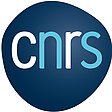Séminaire of the International Research Project (IRP) on Geometric Deep Learning and Generative Models for 3D Human (GeoGen3DHuman)
When: November 26th, 2025, from 9:00am to 12:30pm
Where: UMR CRIStAL, Avenue Henri Poincaré 59655 in Villeneuve d'Ascq, Bâtiment ESPRIT - Amphitheater ATRIUM, ground floor.
Access with Metro M1, station 4 Cantons
9:00 - 9:40 | Stefan Sommer
University of Copenhagen - Pioneer Centre for AI
Title: Score learning and inference for diffusion processes on shape spaces
Abstract: Steering diffusion processes towards a data distribution is an integral part of diffusion models in generative AI. For geometric data such as shape data, diffusion processes appear as models for stochastic dynamics of e.g. species change through evolution, or for generating data distributions on non-linear spaces, e.g. when defining constructs such as the diffusion mean that relies on geometric equivalents of the Gaussian distribution. Score learning is here key for conditioning on observed data. Thus, score learning provides a connection between generative models and geometric statistics. The talk will concern this connection, bridge simulation on geometric spaces, and application of score learning in geometric contexts. A specific example of this is conditioning diffusion processes in infinite dimensions allowing shape observations to be used for phylogenetic inference in evolutionary biology.
9:50 - 10:30 | Stefano Berretti
University of Florence - Media Integration and Communication Center (MICC)
Title: 3D/4D Face and Body Animation
Abstract: Generating dynamic content in 3D is of particular importance for the promise to reduce the cost and development time in many domains like for movie industries, Virtual/Augmented reality, videogames, and humans/avatars interaction. In this talk, we will present some recent results obtained at the Media Integration and Communication Center of the University of Florence in the animation of synthetic 3D/4D face and body models. First, the task of 3D talking heads generation will be introduced, by discussing the latest advancements that also account for emotions, unconstrained topologies, and style. Then, the task of synthetizing complex behaviors of 3D bodies from text prompts will be addressed, with a specific emphasis on training free solutions, and approaches that also contaminate diffusion models with reinforcement learning in the loop.
10:30 - 11:00 | Coffe Break
11:00 - 11:40 | Jean Feydy
INRIA Paris - HeKA team
Title: Normalizing Diffusion Kernels with Optimal Transport
Abstract: Smoothing a signal based on local neighborhoods is a core operation in machine learning and geometry processing. On well-structured domains such as vector spaces and manifolds, the Laplace operator derived from differential geometry offers a principled approach to smoothing via heat diffusion, with strong theoretical guarantees. However, constructing such Laplacians requires a carefully defined domain structure, which is not always available. Most practitioners thus rely on simple convolution kernels and message-passing layers, which are biased against the boundaries of the domain. We bridge this gap by introducing a broad class of smoothing operators, derived from general similarity or adjacency matrices, and demonstrate that they can be normalized into diffusion-like operators that inherit desirable properties from Laplacians. Our approach relies on a symmetric variant of the Sinkhorn algorithm, which rescales positive smoothing operators to match the structural behavior of heat diffusion. This construction enables Laplacian-like smoothing and processing of irregular data such as point clouds, sparse voxel grids or mixture of Gaussians. We show that the resulting operators not only approximate heat diffusion but also retain spectral information from the Laplacian itself, with applications to shape analysis and matching.
11:50 - 12:30 | Emery Pierson
Laboratoire d'informatique de l'École polytechnique (LIX)
Title: Category agnostic priors for non-rigid shape matching
Abstract: Deep functional maps have recently emerged as a powerful tool for solving non-rigid shape correspondence tasks. Methods that use this approach combine the power and flexibility of the functional map framework, with data-driven learning for improved accuracy and generality. However, most existing methods in this area restrict the learning aspect only to the feature functions and still rely on axiomatic modeling for formulating the training loss or for functional map regularization inside the networks. This limits both the accuracy and the applicability of the resulting approaches only to scenarios where assumptions of the axiomatic models hold. In this work, we show, for the first time, that both in-network regularization and functional map training can be replaced with data-driven methods. For this, we first train a generative model of functional maps in the spectral domain using score-based generative modeling, built from a large collection of high-quality maps. We then exploit the resulting model to promote the structural properties of ground truth functional maps on new shape collections. Remarkably, we demonstrate that the learned models are category-agnostic, and can fully replace commonly used strategies such as enforcing Laplacian commutativity or orthogonality of functional maps. Our key technical contribution is a novel distillation strategy from diffusion models in the spectral domain. Experiments demonstrate that our learned regularization leads to better results than axiomatic approaches for zero-shot non-rigid shape matching.



